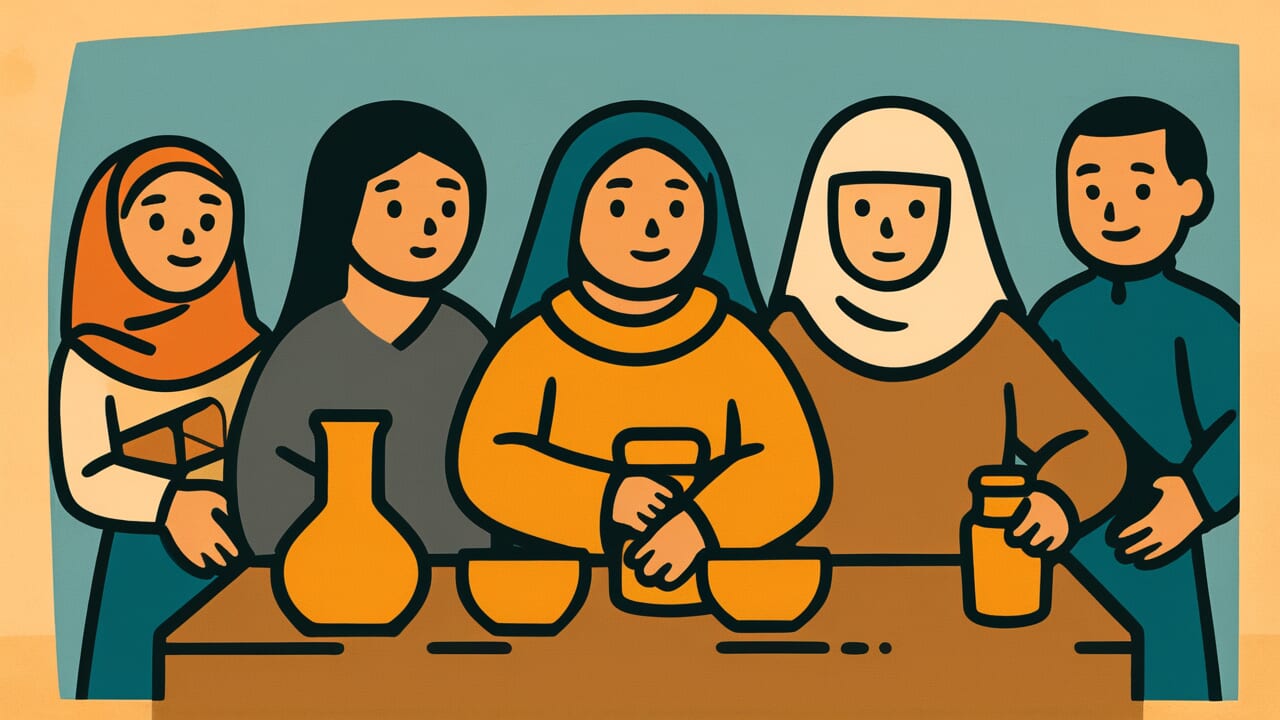How to Read “Seven crafts, eight poverties”
Nana saiku hachi binbō
Meaning of “Seven crafts, eight poverties”
“Seven crafts, eight poverties” means that even if you have many skills and techniques, you’ll end up poor if each one is half-baked and you haven’t mastered any of them.
This proverb warns against the situation where someone who can do many things fairly well ends up unable to succeed. Being multi-talented might seem like a good thing at first glance.
However, you can’t match specialists in any field. As a result, you fall into a state where nobody truly needs you.
Even today, many people try to get lots of certifications or learn various skills. But if all of these remain shallow knowledge or techniques, you won’t develop true expertise.
This proverb teaches the importance of mastering one thing deeply rather than knowing many things superficially. It expresses an essential truth about skill acquisition, similar to the saying “jack of all trades, master of none.”
Origin and Etymology
No clear written records exist about the origin of this proverb. However, it’s believed to reflect the reality of craftsman society during the Edo period.
The “seven” in “seven crafts” doesn’t mean a specific number but rather “many.” Similarly, the “eight” in “eight poverties” emphasizes the degree, meaning “extremely.”
Japanese has long used combinations of seven and eight to express large numbers or strong degrees. Examples include “seven falls, eight rises” and “seven difficulties, eight hardships.”
During the Edo period, the world of craftsmen valued mastering one technique above all else. A carpenter stayed a carpenter, a plasterer stayed a plasterer.
By pursuing one path, you were recognized as “full-fledged” and could earn a stable income. However, if you dabbled in this and that, leaving every technique half-finished, you’d only receive second or third-rate treatment in any job.
As a result, you’d get fewer job requests and lower pay. This proverb likely emerged against the backdrop of such harsh realities in craftsman society.
It contains a deep lesson about skill acquisition, similar to the concept of being “skilled but poor.”
Usage Examples
- He dabbles a bit in English, Chinese, and programming, but it’s seven crafts, eight poverties—he can’t actually make a living from any of them
- Rather than collecting certifications and ending up with seven crafts, eight poverties, it’s better to aim to become a professional in one field
Universal Wisdom
Behind the passing down of the proverb “Seven crafts, eight poverties” lies the conflict between fundamental human desires and reality.
Everyone yearns for the sense of omnipotence—”I can do this, I can do that.” We want to feel valuable by being able to do many things. We seek the security of being able to handle any situation.
When we start learning something new, our hearts leap at the expanding possibilities. But here lies a trap in human nature.
Mastering one thing requires enormous time and effort. Most of all, it involves the pain of “giving up other things.” Choosing something also means letting go of many other things.
To escape this pain, people tend to choose the path of “let’s just try everything.” This attitude looks positive and proactive on the surface. But it might actually be a state of running away from making decisions.
This proverb sounds harsh because it accurately strikes at human weakness. Our ancestors saw through how the talent of versatility can sometimes become a curse.
Precisely because you can do everything reasonably well, you don’t feel the need to commit to one thing. As a result, you become nothing. The depth of wisdom that expresses this universal human condition in just seven characters is truly remarkable.
When AI Hears This
The human brain has a physical upper limit to the amount of information it can process at once. This has the same structure as “channel capacity” in communication engineering.
For example, imagine your cognitive ability as a communication line that can process 10 bits of information per second.
If you concentrate on one skill, you can use all 10 bits to send a high-quality signal. However, if you dabble in seven skills, you can only use about 1.4 bits per skill.
According to the “Shannon-Hartley theorem” in information theory, as bandwidth narrows, the error rate increases exponentially. In other words, mistakes in each skill multiply dramatically.
Even more serious is the “switching cost.” When the brain moves between different tasks, it needs time and energy to reconfigure neural circuits.
This is like a “synchronization signal” in communication—wasted capacity that can’t be used for actual data transmission. A person with seven skills may be wasting 30 to 40 percent of their total cognitive resources just on switching.
As a result, the “signal-to-noise ratio” of each skill drops dramatically. From a customer’s or employer’s perspective, that person’s work looks like “unstable communication full of noise.”
This is the information-theoretic mechanism that produces the result of poverty.
Lessons for Today
What this proverb teaches you today is the courage to select and concentrate.
In our information-flooded modern society, it feels like there are infinite things to learn and challenges to take on. Open social media and you’ll see endless reports of people acquiring new skills. You might feel anxious.
However, what matters isn’t “what to learn” but “what to focus on.”
What do you truly want to master? Once you find it, have the courage to resist even when other attractive options catch your eye.
The insights and sense of achievement you gain from learning one thing deeply are treasures you can never obtain by spreading knowledge superficially.
However, this doesn’t mean narrowing your perspective. It’s important to maintain interest in related fields while deepening one specialty.
What matters is having a “core” expertise. With that core, other knowledge connects organically, and true adaptability emerges.
Starting today, why not reconsider where you’ll invest your time and energy? That choice will greatly change your future.



Comments